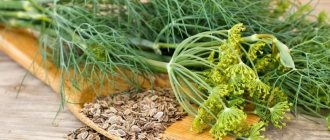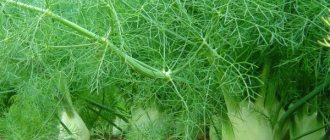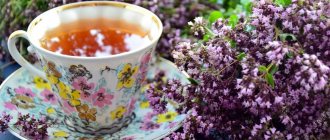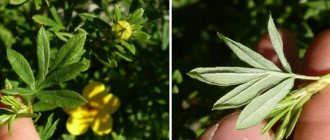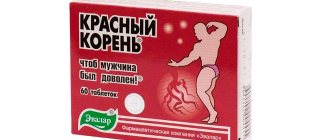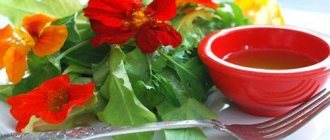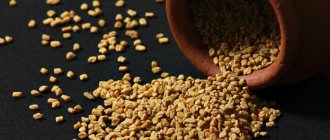Composition and calorie content of dill
The benefits and harms of dill for the human body are determined by the elements that make up the herbs. The plant bunches contain:
- potassium, magnesium and sodium;
- calcium and phosphorus;
- iron and copper;
- zinc and manganese;
- vitamins B1, B2, B5, B6 and B9;
- vitamins A and C;
- vitamin E;
- vitamin PP, or nicotinic acid;
- petroselinic, linoleic, palmitic and oleic acids;
- essential oils;
- cellulose.
The calorie content of dill can be considered average for greens - it is 43 kcal per 100 g.
Chemical composition, nutritional and energy value
Different parts of the plant contain more than 100 biologically active substances, vitamins and microelements. Seeds, greens and roots contain essential oils that add aroma. The seeds contain the most amount of it - 2.5 - 4%. Its complex composition determines the taste and medicinal properties of the plant’s seeds. For example, the oil contains apiol, a powerful antispasmodic, the abortifacient properties of which were written about by Hippocrates.
In addition, the essential oil contains:
- Carvone (about 40%) - this natural substance from the class of terpenes exists in two isomers that have different odors. The characteristic aroma of dill is given by the (S+) isomer;
- limonene is a terpene hydrocarbon that has carcinogenic properties;
- phellandrene;
- myristicin and isomyristicin.
The seeds contain 10-20% fatty oils.
Dill greens (per 100 g) contain vitamins:
- C – in terms of its content (52-242 mg), dill is richer than black currant;
- E and β-carotene (precursor of vitamin A-3.2-12.8 mg);
- PP (3.7 mg/kg), which has two active forms - nicotinamide and nicotinic acid;
- B vitamins – B1 (1.44 mg), B2 (0.36 mg), B9 (folic acid – 2.3 mg/kg);
- R - rutin (5-100 mg).
All parts of the plant contain macroelements necessary for the body:
| Macronutrient name | Content (mg/100 g raw material) | |
| in the green part of the plant | in seeds | |
| sodium | 4,3 | 620 |
| potassium | 335 | 1080 |
| calcium | 223 | 960 |
| magnesium | 70 | 180 |
| phosphorus | 93 | 440 |
| iron | 1,6 | — |
The rich composition of nutrients in dill seeds determines their widespread use in medicine.
The content of microelements in fruits is as follows:
- manganese – 43 mg/kg;
- zinc – 33 mg/kg;
- copper – 8.7 mg/kg;
- molybdenum - 0.56 mg/kg.
100 g of dry raw material contains (g):
- proteins – 2.5;
- fat – 0.5;
- carbohydrates – 6.3;
- dietary fiber – 2.8;
- water – 85.5.
Dill is a low-calorie product. Its energy value is 40 kcal. Therefore, nutritionists advise using fresh and dried dill for weight loss.
What are the benefits of dill for the body?
The health benefits and harms of fresh dill appear in many areas. The properties of greens have the following effects on the body:
- increase resistance to infections and viruses, help with respiratory diseases;
- help relieve migraine symptoms, lower blood pressure in hypertension;
- have a beneficial effect on the stomach and intestines, help normalize digestion and metabolic processes - dill is useful for diabetes;
- reduce the load on the liver and remove accumulated toxins from the body;
- protect eyesight from diseases;
- improve the healing process of skin damage.
The plant also stimulates appetite, and drinks based on it serve as a good diuretic and help get rid of swelling. Dill greens will also benefit the heart system - the plant will strengthen blood vessels and normalize heart rhythm.
Women
The benefit of dill for a woman’s body lies, first of all, in the fact that the plant alleviates monthly ailments and improves the condition during menopause. Greens normalize hormonal levels, help cope with depression, and improve mood.
Dill is also good for a woman’s health because it helps maintain youth longer. The properties of the plant not only improve the condition of the skin and hair, but also affect reproductive abilities. Regular consumption of greens reduces the risk of developing infertility, but increases the likelihood that reproductive functions will be maintained until old age.
Men
The health benefits of dill for men are reflected in the fact that this herb has a beneficial effect on potency. The plant improves the quality of male genetic material, enhances libido, and also protects the prostate from tumors and inflammation.
The medicinal properties of dill for men are also used to prevent heart attacks and strokes. Greens promote vasodilation and relieve spasms, improve cardiac function and help fight the development of atherosclerosis.
Children
The benefits of green dill for the health of children are undeniable. The plant saturates the developing body with vitamins, supports the child’s vision and protects the baby from colds.
But it is possible to offer greens to babies without harm to health only after 8 months - dill is allowed to be added in small quantities to soups. If a negative allergic reaction does not follow, then gradually the daily dose of greens can be increased to 3-5 g. After 1.5 years, children are allowed to be given fresh greens in salads, but in an amount of no more than 10 g per day.
Attention! Since dill sometimes causes severe harm to children’s health, you should consult your pediatrician before introducing the herb into your diet.
Useful properties of dill
In folk medicine and pharmacology, dill greens and seeds are used as:
- soothing;
- antispasmodic;
- vasodilator;
- antiseptic;
- anti-inflammatory;
- expectorant;
- choleretic;
- diuretic (diuretic) agent.
Indications for the use of dill decoction and powder, as well as fresh aromatic herbs, are the following pathologies:
- obesity;
- liver and gallbladder diseases;
- kidney disease;
- gastritis with high acidity;
- flatulence;
- upper respiratory tract diseases;
- allergy;
- convulsions;
- migraine;
- insomnia;
- nervous overexcitation;
- intoxication caused by diabetes mellitus or kidney diseases;
- hypochromic anemia;
- digestive disorders;
- hypertension 1 and 2 degrees;
- ophthalmological diseases (conjunctivitis, iridocyclitis, iritis, myopia, night blindness);
- pustular skin lesions;
- pediculosis.
The benefits of dill for the human body are invaluable. It is not without reason that dill has been widely used in the treatment of these and many other diseases since the 3rd century. BC e. until today.
What is useful for women during pregnancy
Dill is valuable for a woman’s body not only as a raw material for treating diseases, but also as a basis for cosmetics that can be easily prepared at home.
Here are some recipes that have been tested by generations of the fair sex:
- Dill, containing a large amount of the terpene carvone, is used to normalize the menstrual cycle. To do this, dill greens are passed through a meat grinder, the juice is squeezed out of the pulp and mixed with honey in a 1:1 ratio. I drink the resulting product 1 tbsp. l. 3 times a day.
- For scanty periods, healers recommend taking tea from dill leaves. Fresh herbs (4 tbsp) are poured into 1 liter of boiling water. Leave in a thermos for 20-30 minutes. I drink 1 glass 3 times a day until my periods normalize.
- Tea is prepared from flowering dill baskets for heavy menstrual and uterine bleeding of any etiology. To obtain a water infusion, take 1 tbsp. l. baskets and pour 1 cup of boiling water. Close the container, insulate it and infuse the tea for 20 minutes. Drink the resulting broth 1 glass 3 times a day until the bleeding stops. The same recipe is used for hemoptysis.
- To quickly heal injuries after gynecological operations, you can make compresses and tampons from washed, boiled and minced green parts of the plant with inflorescences.
- To normalize bowel movements (eliminate constipation), eliminate edema and flatulence during pregnancy and breastfeeding, use an infusion of dill seeds - 2 tsp. chop the fruits, pour 2 cups of boiling water and leave in a thermos or covered for 10 minutes. Take 0.5 cups three times a day 30 minutes before meals.
- To ensure that a woman's milk comes in while breastfeeding, prepare a decoction of the seeds - 1 tbsp. l. Add dill seed powder to 1 glass of milk and bring to a boil. Remove from heat and leave for ½ hour in a tightly closed container. Strain. Drink warm with honey 10-20 minutes before breastfeeding, ½ cup.
During pregnancy, you should strictly follow the dosage and take the drug in short courses of 7-10 days. Long-term use of dill decoction may cause dizziness or an allergic reaction. It is prohibited to take dill seed oil during pregnancy, as it causes uterine spasms and can lead to miscarriage.
In addition to medical indications, women use dill as a cosmetic product. If you prepare an aqueous infusion of the fruit according to the above recipe, then applying napkins soaked in it to your eyes can eliminate redness and inflammation of the eyes, remove bags and dark circles under the eyes.
For aging and dry facial skin, women prepare a mask to nourish, brighten and smooth the skin. It is prepared from 2 tbsp. l. chopped dill, 1 tsp. olive oil and oatmeal, added to form a paste. Apply the mask in a thick layer to a cleansed face and leave for 20 minutes. Wash off with cool water or cooled dill decoction.
Benefits for men
In Ancient Greece, dill sprigs were given to lovers; they were pinned to clothes, as it was believed that the phytoncides that caused the aroma of greenery were an aphrodisiac that increased sexual desire.
An infusion of dill seeds is recommended for men to increase potency, as it helps dilate blood vessels and fill the cavernous bodies of the penis with blood. For the same purpose, you can use powder from the seeds of the plant. It is recommended to take them 0.5-1 tsp. 30 minutes before meals, washed down with water.
Intense mental and physical work, stress cause increased nervous excitability, insomnia, and irritability in men. To calm your nerves and find sound sleep 10 tbsp. l. dill seeds pour ½ liter of Cahors or port wine, cook over low heat for 10 minutes. The resulting decoction is filtered and taken 50 ml before bedtime.
For bad breath in men who smoke, chew a sprig of a green plant. Essential oil produces a deodorizing effect, tannins strengthen gums, plant fibers clean and whiten teeth better than Orbit.
Bad habits, work in difficult and dangerous conditions lead to the accumulation of toxic substances in the body of men. Drink ½ cup of water infusion of dill seeds 30 minutes before meals. Providing a diuretic effect, the infusion cleanses the body of toxins and waste.
The juice of the aerial part of the plant with honey (1:1) is taken for inflammation of the prostate gland in men.
For children
Dill water for intestinal colic has been used in infants for a long time. It is prepared from 1 tbsp. seeds, poured 1 cup of boiling water, leave for 60 minutes, strain. Children should take ½ glass of dill water before meals.
A decoction of dill fruits in water is used to increase appetite in children, normalize stomach function, and colic.
For diathesis, apply compresses and wash the rashes with an infusion of seeds in boiling water. The same infusion is used for a cold in a child to facilitate the discharge of phlegm.
Pediculosis is often diagnosed in children attending kindergarten or primary school. For lice, dill fruits, ground with pork fat, are rubbed into the head and covered with a plastic bag for 1-2 hours. The hair is washed with shampoo and rinsed with water acidified with vinegar. Comb out nits and lice with a fine comb. The procedure is repeated after 6-7 days.
For enuresis - daytime and nighttime urinary incontinence in children and adults, use dill juice with honey.
Dill seed powder with tansy powder, wormwood and caraway fruits, taken 1 tbsp. l. used against pinworms, roundworms and other types of intestinal parasites. Children are given 1 tsp of powder. before eating. The mixture is washed down with milk or water. Treatment continues until complete recovery.
Is it possible for pregnant and lactating women to eat dill?
The benefits of dill during pregnancy depend on the health of the expectant mother. If pregnancy proceeds without complications, then you can eat greens without fear of harm. The plant will relieve toxicosis, help get rid of swelling and generally strengthen the body of mother and child.
However, the plant should not be abused - in large quantities, greens are harmful and can cause miscarriage. If pregnancy occurs with complications, then it is better to refuse even the cosmetic use of greens.
The medicinal properties and contraindications of dill for women during lactation should be determined individually. Dill additionally stimulates the production of breast milk - the plant is highly recommended for consumption. Of course, you need to add greens to regular dishes in small quantities. And if the baby has a negative reaction, greens will have to be removed from the diet to avoid harm.
Dill contraindications
Dill, like any other medicinal plant or medical product, should be consumed in accordance with the doctor's instructions and prescribed dosages.
- It is strictly contraindicated for use in patients who have low blood pressure. Failure to comply with this condition may result in side effects such as headache, dizziness, nausea, and, in the worst case, loss of vision.
- Individual intolerance and allergies are also a “taboo” for consuming this plant. If it is unknown whether the patient is allergic to dill, this should be checked before prescribing a course of treatment. To do this, you can carry out a simple test: apply crushed dill gruel to the inside of your wrist and leave for a quarter of an hour. You can also try eating a few sprigs on an empty stomach. If there is no reaction, then you can safely use dill or tinctures based on it as a medicine.
- Due to the fact that dill thins the blood, it is not recommended for women during pregnancy and menstruation, as increased bleeding may occur.
Which dill is healthier: dried, frozen or brewed?
The health benefits and harms of dill appear not only when eating fresh herbs. Plant-based products are also prepared from dried or frozen raw materials by boiling green bunches of dill.
- Frozen dill has the greatest beneficial properties - it retains valuable substances in its composition in almost full volume.
- Many valuable components are preserved in dill decoctions and infusions - vitamins and microelements are present in drinks in high concentrations; dill root reveals its beneficial properties especially well.
- But as for dried greens, there is very little benefit left in them - when dried, many vitamins and minerals are simply destroyed.
Thus, it is most advisable to use dill freezing for cooking and medicinal purposes; it will have the most pronounced positive effect on health.
Can dill be harmful?
The benefits of dill are obvious. But there are several cases in which dill can have a negative effect on the body. This plant is considered a fairly strong allergen, so if you are prone to such reactions, it is better to start by limiting yourself to one or two branches and observing your body. If a small amount does not cause any consequences, feel free to include it in your diet
Also, avoid dishes with dill, decoctions and infusions with it if you have low blood pressure - while for hypertensive patients its effect is healing, in hypotensive patients it can cause a decrease in blood pressure and a deterioration in well-being.
Traditional medicine recipes based on dill
The beneficial properties of dill for the human body are widely used in home medicine. Simple herbal remedies prevent many ailments and help relieve unpleasant symptoms.
We recommend reading: The benefits of mashed potatoes, how to prepare them
Dill juice
The simplest plant-based drink is dill juice. It’s very easy to get it, all you need to do is:
- thoroughly wash the greens and dry them naturally;
- pass the dill through a juicer or meat grinder;
- Strain the released fresh juice into a separate container.
The only difficulty is that to obtain a sufficient amount of juice you will need quite a lot of dill raw materials. However, dill juice is usually consumed in small quantities.
Fresh plant juice helps with many ailments. In particular, it is used for:
- eye diseases - you need to moisten 2 cotton swabs in a useful product and apply to closed eyes for 20 minutes;
- insomnia - add 50 ml of dill juice to 500 ml of red wine, boil the drink for a quarter of an hour, then leave for another hour and drink a couple of sips before bed;
- gastritis - if the acidity of the stomach is increased, it is recommended to consume a teaspoon of dill mixed with a large spoon of honey or a quarter glass of milk daily.
The benefits and harms of dill juice are also actively used in facial skin care. Washing with dill helps narrow pores, eliminate oily shine, and improve the overall tone of the epidermis.
Important! The juice retains its beneficial properties for only 30-40 minutes at room temperature and for a day in the refrigerator. For long-term treatment, it is necessary to prepare a new remedy each time.
Dill oil
The healing properties of dill are clearly expressed in the essential oil based on the herbs, seeds or roots of the plant. It will not be possible to prepare it at home, since the product is obtained using steam distillation. However, the oil can be bought at a pharmacy - it should be transparent or slightly yellowish in color, and liquid and light in consistency.
Essential oil is used to treat colds and insomnia; dill in the form of oil benefits the stomach.
- To get rid of constipation, you need to dilute 1 drop of oil in a glass of water and drink the product three times a day, a couple of teaspoons.
- For flatulence, you can dilute a teaspoon of oil in 5 large spoons of water, and then drink 1 large spoon three times a day.
- If you drop half a pipette's worth of dill oil onto a cube of refined sugar, and then put it under your tongue and wait until the sugar dissolves, this will help cure a dry cough faster.
- For allergic skin irritations and purulent rashes, it is recommended to use the oil externally - dilute 3 drops of the product in a glass of water and rub into the skin several times a day.
For migraines and insomnia, it is useful to rub the oil into the skin on the temples in a circular motion - this relieves painful spasms of blood vessels and relaxes the nervous system.
Dill tea
A simple tea based on dill herbs is prepared very simply - pour a large spoonful of the crushed plant into a liter of boiling water. At the same time, it is customary to brew greens not in special teapots, but in thermoses - this way the drink will turn out much stronger and healthier.
You need to infuse the tea for an hour, or even better, leave the thermos closed all night - in this case, the dill will release the maximum of useful vitamins and elements. The finished product will need to be strained to remove any remaining greenery.
The benefits of dill tea are manifested in many ailments. In particular, it is used:
- as a diuretic and choleretic - dill is very useful for the kidneys;
- to enhance lactation during breastfeeding;
- to combat insomnia and migraines;
- for the purpose of losing weight and improving metabolism;
- to lower blood pressure in hypertension.
The benefits of dill decoction will be maximum if you drink a few sips of the product before meals - 3 or 4 times a day.
How to use and in what form?
Dill and its seeds are actively used by people to treat various types of ailments. In the case of using tinctures, it is the seeds that are most often used due to the high content of vitamins A, B, C , beneficial acids and essential oils.
For urinary incontinence
Urinary incontinence often occurs as a result of childbirth or gynecological surgery. It can also be caused by age or heavy physical activity.
To cope with the problem, you need to prepare a tincture with the following composition:
- 1 tbsp. seeds;
- 1 cup boiling water.
To prepare a medicinal drink, pour boiling water over the seeds and leave for 3 hours. After this, strain and drink. To achieve the desired effect, it is recommended to use the tincture for a week.
Lack of menstruation
To induce menstruation, it is necessary to replenish vitamin C reserves in the body. It improves blood flow and strengthens blood vessels. The procedure should be carried out three days before the desired date. It is enough to add a large amount of fresh dill to your food . If desired, you can prepare a drink by finely chopping the greens and pouring hot water over them.
During menopause
Mash the seeds in a stone mortar, then pour the powder into an airtight container. Take the powder 20 minutes after meals with warm water.
The course of treatment lasts a month, after which dill should be used only in case of complications (sharp rise in temperature, loss of strength, dizziness).
With heavy menstruation and uterine bleeding
- 1 tbsp. blooming dill.
- 1 cup boiling water.
Pour in the greens and leave for 20 minutes, having previously insulated the container. The resulting tea should be drunk three times a day to stop bleeding. The same recipe is used for hemoptysis .
To increase lactation
- 1 tbsp. seeds
- 250 ml water.
Pour boiling water and leave for about two hours, then strain. You need to take half a glass twice a day. The second option is to take one tablespoon 6 times a day.
After gynecological operations
To speed up healing after gynecological operations, it is recommended to use tampons and compresses using dill. It is enough to boil the chopped or minced greens.
The use of dill in home cosmetology
The vitamins, natural acids and microelements in the plant make it extremely useful for skin and hair care. Dill is one of the most popular remedies for making homemade masks and lotions.
The antiseptic and tonic properties of the plant allow you to maintain youth longer and enjoy healthy skin. When used externally, hair becomes stronger and more voluminous.
Face masks with dill
A simple dill mask will help normalize oily skin, tighten pores and smooth out the first wrinkles. It's very simple to do:
- a bunch of fresh herbs is chopped manually or using a blender;
- mixed with olive or almond oil;
- spread over the face for a quarter of an hour.
Another mask will help get rid of age spots and freckles. To prepare it you need:
- chop 8 fresh branches of the plant and crush into a homogeneous paste;
- mix the raw materials with 12 g of sour cream;
- add a pinch of ginger.
The mask is applied to the skin in a thick layer and kept for half an hour. It is best to carry out the procedure in the evening.
Dill is a good remedy for eliminating bags under the eyes and the first wrinkles. To improve blood circulation and lymph flow, as well as tighten the skin, you need:
- chop and crush 6 sprigs of fresh herbs;
- add 15 drops of grape and 7 drops of almond oil;
- Mix thoroughly and distribute the mixture over the face, paying special attention to the skin under the eyes.
The product can be left on the skin overnight, but in the morning you need to wash it thoroughly.
Dill for beautiful hair
The benefits and harms of dill decoction are used for hair care. The following plant-based product will help regulate the oiliness of curls and scalp:
- a bunch of fresh or dried dill is mixed with 2 large spoons of dry St. John's wort;
- the herbs are poured with a liter of boiling water;
- keep the product in a water bath for a quarter of an hour;
- The finished broth is cooled and filtered.
To improve the condition of your hair, it is recommended to rinse your curls daily with a herbal decoction. There is no need to rinse off the product with water after this - the hair is simply allowed to dry naturally without using a hair dryer. Greens not only strengthen the hair roots, but also make the curls smoother and more manageable.
For hair loss, a mask based on dill is of great benefit. They do it as follows:
- a bunch of fresh plant is mixed with a couple of large spoons of honey;
- add a large spoon of olive oil to the mixture;
- The mask is heated by steam for half an hour.
Recommended reading: What are the benefits of onions for humans and contraindications?
When the product is ready, the greens can be removed from it - the dill will have time to give all its beneficial properties to the oil and honey. The mask is distributed over the entire length of the hair, paying special attention to the roots, then cover the hair with a cap or cling film and wait 40 minutes.
Medicinal properties of dill for human health
Since the times of the pharaohs, the beneficial properties of dill for the human body have been known. The ancient Romans and Greeks knew about them, and Hippocrates mentioned him with respect. Avicenna devoted a separate chapter of his monumental work to the benefits of dill for the human body. In the Middle Ages, it was credited with magical properties; it was believed that it drove away evil spirits.
In folk medicine, dill treatment is prescribed for diseases of the stomach, intestines, kidneys, insomnia, migraines, anemia and eye diseases. Aloe and flaxseed oil for gastrointestinal diseases.
Medicinal properties of dill:
- antispasmodic;
- diuretic;
- lactogonic;
- reduces blood clotting;
- reduces the acidity of gastric juice;
- reducing the level of low-density triglycerides.
Scientific experiments have established that with long-term use, dill significantly reduced the platelet content in the blood and reduced its coagulability, while the effect on the level of total cholesterol in the blood was insignificant, and there was no significant change in blood pressure.
When consuming dill, the acidity of gastric juice also noticeably decreased, which, together with appetite stimulation, makes it possible to recommend it for gastritis with high acidity and ulcers of the stomach and duodenum.
Dill seeds also have medicinal properties.
Benefits for women
Dill has many beneficial properties for women, but there are also contraindications. It is believed that pregnant women should be careful with it, as it tones the uterus, which can cause miscarriage if consumed in excess.
This danger has not yet been confirmed by science. In experiments with rats, no miscarriages were observed, and the effect on pregnancy was limited to a slight increase in the due date, which did not affect the offspring.
Women value fragrant greens for relieving pain during menstruation and helping to normalize the menstrual cycle. This effect is explained not only by the flavonoids present in dill, but also by other compounds that affect the tone of the uterus. Exactly what these substances are is subject to debate and research. Is sage effective for conception and menopause?
Dill in moderate doses is beneficial for pregnant women. A growing fruit requires calcium and iron, which are available in sufficient quantities in dill. Calcium and phosphorus will help maintain the health and beauty of the expectant mother's hair. The body of the expectant mother loses many of these elements, which are used to build the skeleton of the fetus. Dill also relieves cramps, which often occur with calcium deficiency.
The benefits of dill for a woman’s body are not limited to this. He has found a worthy place for himself in cosmetics. To get rid of acne, you can make masks or wipe the skin with its juice or vodka tincture. Dill can whiten freckles. For this purpose, you should mix its juice with parsley juice and wipe the skin.
Read also: Planting raspberry seedlings in autumn
Masks made from it will help restore freshness to aging skin. A napkin or cotton wool moistened with an infusion of seeds is useful for red eyes, especially when sitting at a computer monitor for a long time. Dill will also be beneficial for bags under the eyes. This infusion is used to wash your hair to strengthen your hair. It is also used to make hand baths to make your nails beautiful. Cosmetologists have long appreciated dill and add it to hair balms and shampoos, as well as creams and lotions for the face and hands.
To prepare masks, it is better to use young dill.
Low calorie content and significant content of vitamins and microelements determine the benefits of dill in weight loss diets. Chia seeds for weight loss.
How is it useful for men?
It's time to talk about the beneficial properties and contraindications of green dill and its seeds (fruits) for men.
Even the ancient Egyptians knew that dill made men more temperamental; the Greeks pinned it on their clothes to be more confident in their abilities. It was also believed that it arouses desire in women.
In small doses it slightly stimulates sexual function, but in large doses it acts quite the opposite, inhibiting spermatogenesis. There was no significant decrease in testosterone levels in experiments from moderate amounts of dill, but the fact of a decrease in the frequency of conceptions in laboratory animals goes beyond the statistical error. It is possible that this is not a direct effect on the reproductive organs, but a consequence of a change in the aggregate state of sperm in the seminiferous tubules.
Another benefit of this wonderful garden plant is that it eliminates bad breath better than any chewing gum.
How to use dill in cooking
Of course, treatment with dill is not the only or even the main way to use greens. The plant is widely used in cooking as a seasoning in a wide variety of dishes. It is added:
- in soups and salads;
- for cold appetizers and hot main courses;
- to fish and meat;
- for pates and marinades;
- for sauces and dumplings.
The plant goes well with almost any product; it can be found in some cheeses and curd dishes. One of the popular uses of greens is in canning vegetables. Dill can often be found in pickles; it prevents products from quickly becoming moldy, gives them a sharp taste, bright aroma and density. It is especially recommended to add greens to pickled cucumbers so that they remain firm and crispy.
Dill medicinal properties
In addition to its unique taste, dill has many medicinal and healing properties. But for dill to be truly beneficial, it must be chosen carefully.
Dill medicinal properties of the plant
It can be purchased in a store or at the market, regardless of the time of year.
You should pay attention to its appearance. If the stems are limp and there are sticky ends of the stems, then the dill is not fresh and it is better to look for another option.
Typically, a fresh bunch of dill can be stored for several days, provided it is kept at room temperature and the ends are dipped in water.
If stored in the refrigerator, its shelf life can be increased to a week in the vegetable and herb storage department.
To make preparations for the winter, you just need to thoroughly wash the plant and dry it in the fresh air, but without exposure to direct sunlight, preferably in the shade.
Along with other herbs (parsley, onions, cilantro, etc.), dill is unusually beneficial for men. It not only restores the balance of vitamins and minerals, but also improves male sexual function.
In the stems and leaves of dill
contains many components that have a positive effect on the human body: vitamin C, B, carotene, salts, nicotinic acid, potassium and calcium, folic acid, iron and phosphorus. This composition of elements has a beneficial effect on many processes and the functioning of human organs. In particular, it normalizes the functioning of the gastrointestinal tract, helps lower blood pressure and has a positive effect on the functioning of the heart.
Dill seeds very often save young mothers whose babies suffer from colic. Dill water, which is made from seeds, soothes children's tummies. In addition, dill seeds have other medicinal properties. They help remove waste and toxins from the body, increase appetite, stimulate the formation of gastric juice, relieve flatulence and improve intestinal motility. It can also be used as a sedative, diuretic and antispasmodic.
Harm of dill and contraindications for use
Even the beneficial properties of fresh dill can be harmful to health in certain diseases and conditions of the body. In particular, you cannot eat the plant in one form or another:
- with an individual allergy to dill;
- with heavy bleeding, for example, during menstruation;
- during pregnancy with a high risk of miscarriage, dill can cause irreparable harm;
- with a stomach ulcer in the acute stage - greens will not only have an irritating effect on the mucous membranes, but can also provoke bleeding;
- for hypotension - the plant reduces blood pressure, so it can cause dizziness and even fainting;
- for atony - greens have a negative effect and cause harm in case of poor tone of internal organs and skeletal muscles.
Advice! Even healthy people should consume greens with caution. If you eat it too often and in large quantities, weakness and apathy may occur, dizziness and drowsiness will appear.
Benefit for health
In addition to its ability to maintain a healthy digestive system, this green seasoning improves sleep, helps with gastrointestinal diseases, menstrual disorders and respiratory diseases.
It is also suitable for oral care and acts as an immune system stimulant. Sweetgrass has a wide range of effects, which include, for example, anti-inflammatory properties that help fight arthritis.
Properties
- Protection of cells from radicals;
- preventing colds and flu;
- antiseptic effects – anti-inflammatory effect;
- body detoxification;
- increased appetite;
- removal of excess water from the body;
- cleansing the urinary tract and kidneys;
- support for regular bowel movements;
- migraine relief;
- treatment of skin diseases;
- calming the nervous system.
Beneficial effects on the body
- Digestion – essential oils activate and stimulate the secretion of bile and gastric juice, improve intestinal motility and relieve constipation.
- Insomnia – the same essential oils in small quantities have a sedative and hypnotic effect. This means ensuring healthy sleep.
- Bones – calcium contained in the plant is necessary for proper bone structure and strength (mineralization, prevention of osteoporosis).
- Diabetes – Helps regulate insulin levels in the blood.
- Arthritis – this is where the anti-inflammatory properties of the plant come to the rescue.
- Respiratory disorders – Some flavonoids and essential oils have antihistamine effects.
- Dental care – essential oils have antibacterial and antiseptic properties. Antioxidants help minimize damage from free radicals in the mouth.
Harvesting and storing dill
Fresh dill is stored for a fairly short time - after just a few days, the green bunches begin to fade. But there are ways to preserve the plant for longer periods - it needs to be prepared using one of the proven methods.
How to store dill in the refrigerator
Fresh dill, placed in the refrigerator in a plastic bag or store-bought packaging, begins to wither very quickly - literally in a couple of days. Its shelf life can be slightly extended in a very simple way - just put bunches of the plant in a glass of water and keep it like that in the refrigerator. Then the greens will retain their freshness and beneficial properties throughout the week.
How to dry dill
Dried dill retains its beneficial properties for a long time. Preparing greens is quite simple.
- The fresh plant is washed thoroughly and then allowed to dry naturally in the open air.
- The greens are carefully sorted, all wilted and darkened branches and roots are removed.
- Small bunches of greenery are formed, tied and hung in a dry and well-ventilated place away from direct sunlight.
When the plant is completely dry, it will need to be carefully removed and stored in a linen or linen bag for long-term storage.
Greens can be dried not only in bunches, but also in crushed form. This is also very easy to do.
- Roots and dense stems are removed from fresh bunches, the remaining parts are thoroughly chopped and laid out in a thin layer on a tray or flat plate.
- Cover the top of the greens with a towel.
- Drying is also carried out in a dry place with good ventilation, but not in direct sunlight.
- It is recommended to pour the finished dry plant into a glass or wooden container and use it as needed as a seasoning.
You can store a dry plant without loss of quality for a year. But it should be noted that the benefits of dried dill are noticeably reduced compared to fresh or frozen. Greens retain a pleasant aroma and add an interesting taste to familiar dishes, but they contain few vitamins. Dried dill is used mainly in cooking, but for medicinal purposes it is much better to use fresh or frozen herbs.
How to freeze dill
The benefits of frozen dill are considered the highest - even compared to the valuable properties of fresh herbs. When frozen, especially quickly, all the useful minerals and vitamins are preserved in the plant. They are not destroyed, as when drying or boiling greens, but remain waiting for the moment when the plant is thawed.
There are 3 ways to freeze greens for long-term storage.
- In bunches. The procedure in this case is very simple - dill, picked from the garden or purchased in a store, is washed thoroughly, and then they wait until the last drops of water dry. After this, the grass is sorted out, the roots and stems are removed and several dense bunches are formed from the grass, and then they are wrapped in cling film and put in the freezer.
- Cubes. The washed fresh plant is thoroughly crushed and tightly poured into special ice molds so that the greens fill them halfway. Then the molds are completely topped up with water and placed in the freezer to completely harden. Most often, cubes are used to prepare soft drinks or added to soups. In addition, it is useful to wipe your face with dill ice - it helps improve skin tone and get rid of swelling.
- In crushed form. The plant is prepared for freezing in exactly the same way as in the first case, only at the last stage the greens are chopped into small pieces and poured into a plastic container, and then put in the freezer.
A frozen plant in any form retains its properties throughout the year. At the same time, it is not recommended to freeze dill again - it will not cause harm, however, the greens will lose all the benefits.
Dill seeds in folk medicine
You can buy dill seeds at any pharmacy. The plant is great for making tinctures and decoctions at home. Traditional healers use the seeds, leaves, stems and inflorescences of the plant for treatment. For pyelonephritis and kidney diseases, the herb is used as a diuretic. To cure bronchitis, you need to use half a liter of boiling water and a tablespoon of seeds. The decoction should be taken 3 times a day. For problems with digestion of food, use the plant in dried and fresh form. Dill seeds are also used in folk medicine:
- for the treatment of hypertension;
- with an inflammatory process in the bladder;
- to improve appetite, eliminate putrefactive formations;
- as a powerful carminative, expectorant;
- against severe stress, insomnia;
- for the treatment of ulcers, allergies, scabies;
- against cramps, flatulence;
- for the treatment of eye inflammation;
- for colds.
- Knitting cap for a newborn: knitting description, video
- Men's tennis haircut (PHOTO)
- Non-surgical nose correction: methods
